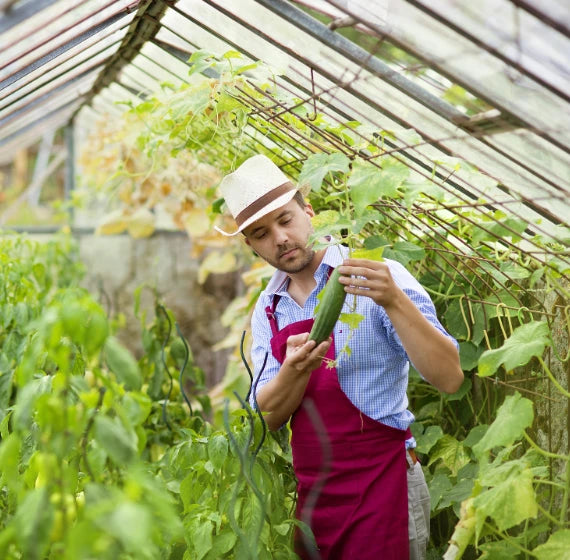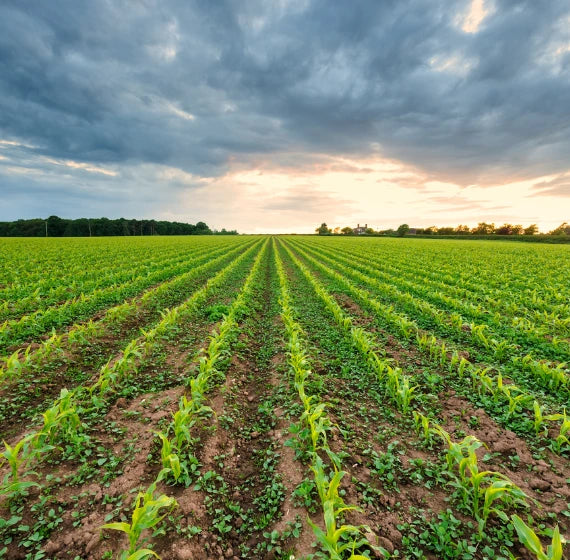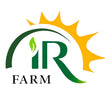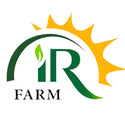Hybrid Squash Triple Ball F1 Seeds By SnS Seeds
Hybrid Squash Triple Ball F1 Seeds By SnS Seeds
Available in stock (1000)
Hybrid Squash Triple Ball F1 Seeds by SnS seeds is a premium variety of squash designed to offer excellent yield, exceptional quality, and superior disease resistance. Known for its uniformity and high productivity, these seeds are ideal for both professional farmers and home gardeners looking to grow top-quality squash. With a 99% purity and 85% germination rate, the Hybrid Squash Triple Ball F1 variety is the go-to choice for consistent results and vibrant harvests.
Hybrid Squash Triple Ball F1 Seed Characteristics
Characteristic |
Details |
|
Variety |
Hybrid Squash Triple Ball F1 |
|
Seed Purity |
99% |
|
Germination Rate |
85% |
|
Shape |
Triple Ball, rounded and uniform |
|
Color |
Bright yellow with green undertones |
|
Maturity Time |
60–70 days from transplant |
|
Resistance |
Strong resistance to common pests and diseases |
|
Climate Suitability |
Warm to temperate climates |
|
Ideal Soil Type |
Loamy, well-drained soils |
Why Choose Hybrid Squash Triple Ball F1 Seeds?
-
High Yield Potential: It is engineered to produce high-quality, abundant crops. With proper care and ideal growing conditions, these plants can produce a large number of squash fruits, ensuring that growers can maximize their returns. Whether you’re growing for local markets or personal use, the yield potential is one of the key advantages of this variety.
-
Exceptional Disease Resistance: Disease resistance is one of the most important factors when choosing seeds for commercial and home gardening purposes. The Hybrid Squash Triple Ball F1 has been bred to resist common squash diseases like powdery mildew, mosaic virus, and downy mildew. This ensures healthy plants and reduces the need for frequent pesticide applications, making it an environmentally friendly option.
-
Attractive and Uniform Fruit: One of the standout features of the Hybrid Squash Triple Ball F1 is the unique shape of its fruit. The squash grows in a distinctive triple-ball formation, which is highly attractive to consumers. The uniform size and shape make them ideal for market display, giving your produce an edge in the competitive agricultural market. The squash also boasts a bright, vibrant yellow color, making it visually appealing for both fresh consumption and culinary purposes.
-
Flavor and Texture: The Hybrid Squash Triple Ball F1 is not just about looks—it also offers an excellent eating experience. The squash has a rich, sweet flavor with a smooth, creamy texture. Whether cooked or used in fresh dishes, this squash is versatile and perfect for a variety of recipes, making it highly sought after by chefs and home cooks alike.
-
Fast Maturity and Early Harvest: Another major benefit of the Hybrid Squash Triple Ball F1 is its relatively short growing cycle. This variety matures quickly, typically within 60 to 70 days after transplanting. For farmers, this means an earlier harvest, which can lead to multiple cropping cycles within a single growing season. Fast-growing crops also help reduce the time required to replenish soil nutrients.
Detailed Growing Guide
To achieve optimal results, following the proper steps for growing Hybrid Squash Triple Ball F1 Seeds is essential. Here’s a step-by-step guide to help you grow this premium squash variety successfully:
1. Site Selection
-
Choose a location that receives full sun (at least 6-8 hours per day).
-
The soil should be well-drained, loamy, and rich in organic matter. Ideally, the pH should range between 6.0 to 7.5.
-
Ensure the area is free from heavy frost and cold drafts, as squash plants thrive in warm environments.
2. Soil Preparation
-
Till the soil to a depth of about 8-12 inches and remove any debris or weeds.
-
Enrich the soil with compost or well-rotted manure to ensure it’s nutrient-rich.
-
If needed, test the soil’s pH level and amend accordingly to maintain an optimal growing environment for your squash.
3. Planting Of Hybrid Squash Triple Ball F1 Seeds
-
Direct sow seeds after the last frost, when the soil temperature reaches at least 65°F (18°C). Alternatively, seeds can be started indoors 4-6 weeks before the last frost and then transplanted into the garden once the weather is warm.
-
Plant seeds about 1 inch deep, spaced 18-24 inches apart in rows that are 4-5 feet apart.
-
If transplanting, harden the seedlings before placing them in the soil.
4. Watering
-
Squash plants require consistent moisture, especially during the fruiting stage. Water deeply and regularly, keeping the soil evenly moist.
-
Avoid overhead watering to reduce the risk of fungal diseases; drip irrigation is ideal.
5. Fertilization
-
Apply a balanced fertilizer before planting, ensuring that nitrogen, phosphorus, and potassium are in the mix.
-
Squash plants are heavy feeders, so additional feedings may be necessary throughout the growing season. Use a balanced liquid fertilizer or compost tea every few weeks.
6. Pest and Disease Management
-
Regularly inspect plants for pests like aphids, squash bugs, and cucumber beetles. Hand-pick insects when necessary or use organic pest control methods.
-
Monitor for early signs of disease, including yellowing leaves or powdery spots. Use organic fungicides or practice crop rotation to avoid recurrent issues.
Frequently Asked Questions
What is the germination rate of Hybrid Squash Triple Ball F1 Seeds?
The germination rate is 85%. This means that 85% of the seeds will successfully sprout under optimal growing conditions.
How long does it take for Hybrid Squash Triple Ball F1 Seeds to mature?
The squash typically matures in 60–70 days from transplanting. This makes it a fast-growing variety, which is ideal for growers looking to get early or multiple harvests.
What climate is best for growing this squash?
It thrives in warm to temperate climates. The ideal temperature range for growing is between 65°F (18°C) and 85°F (29°C). Avoid growing in cold, frost-prone areas.
What diseases are resistant to Hybrid Squash Triple Ball F1?
This variety has a strong resistance to several common squash diseases, including powdery mildew, mosaic virus, and downy mildew. This makes it a healthier, lower-maintenance crop to grow.
Couldn't load pickup availability
Don’t miss out on this limited-time advantage crafted for you
About This Product
About This Product
Our agriculture products are selected to help farmers grow healthy crops and achieve better yields. Every product is genuine, effective, and trusted in the farming community.
Why Choose This Product?
- 🌱 Improves crop growth and protection
- 💧 Easy to apply with clear instructions
- 🛡️ Safe and reliable for farm use
- 📦 Delivered fresh with secure packaging
We aim to provide farmers with the right solutions for every season.
Product Highlights
Product Highlights
- Genuine and trusted by farmers
- Supports crop health and yield
- Easy to apply with clear guidance
- Suitable for major crops in Pakistan
- Safe and effective for long-term use
Shipping & Return
Shipping & Return
We deliver all across Pakistan, aiming for same-day delivery whenever possible. Most orders reach you within 2–4 working days, packed with care. If you receive a damaged or wrong product, you can request a return or exchange within 7 days — quick, simple, and hassle-free.
Your payment information is processed securely. We do not store credit card details nor have access to your credit card information.
4 Steps to a Healthier Farm

Prepare & Protect
Give your crops the strong foundation they need. Healthy soil and proper preparation ensure that seeds, fertilizers, and crop protection products work effectively to support growth and resist pests.

Nourish & Boost
Provide essential nutrients and supplements to your crops. Using the right fertilizers and growth enhancers helps plants develop strong roots, vibrant leaves, and better overall health.

Monitor & Care
Regularly check on your plants to prevent diseases, pests, or nutrient deficiencies. Timely observation and care help maintain crop quality and maximize yields.

Harvest & Celebrate
Reap the benefits of your hard work! Healthy, thriving crops lead to higher yields, better profits, and the satisfaction of seeing your farm flourish.




